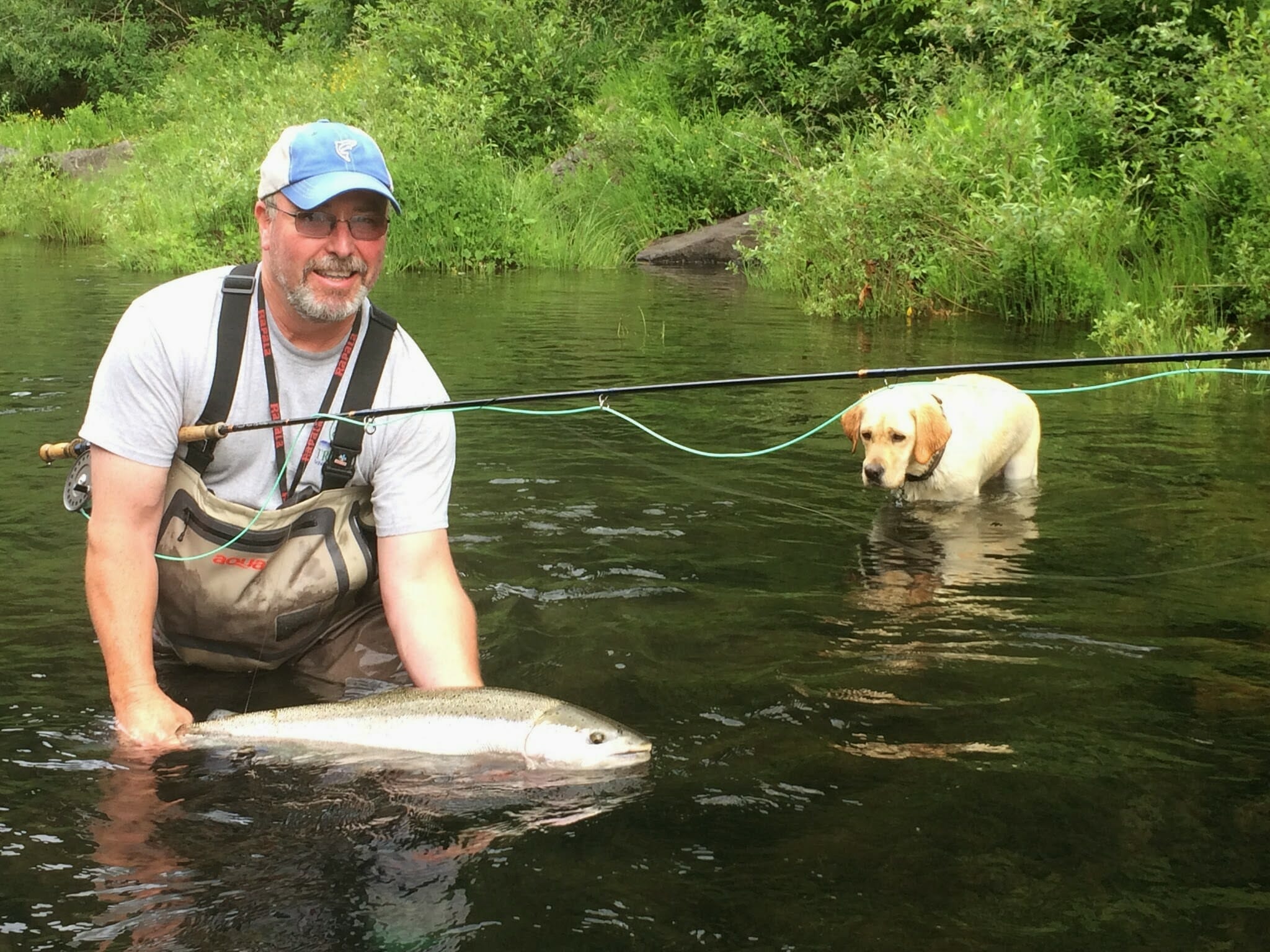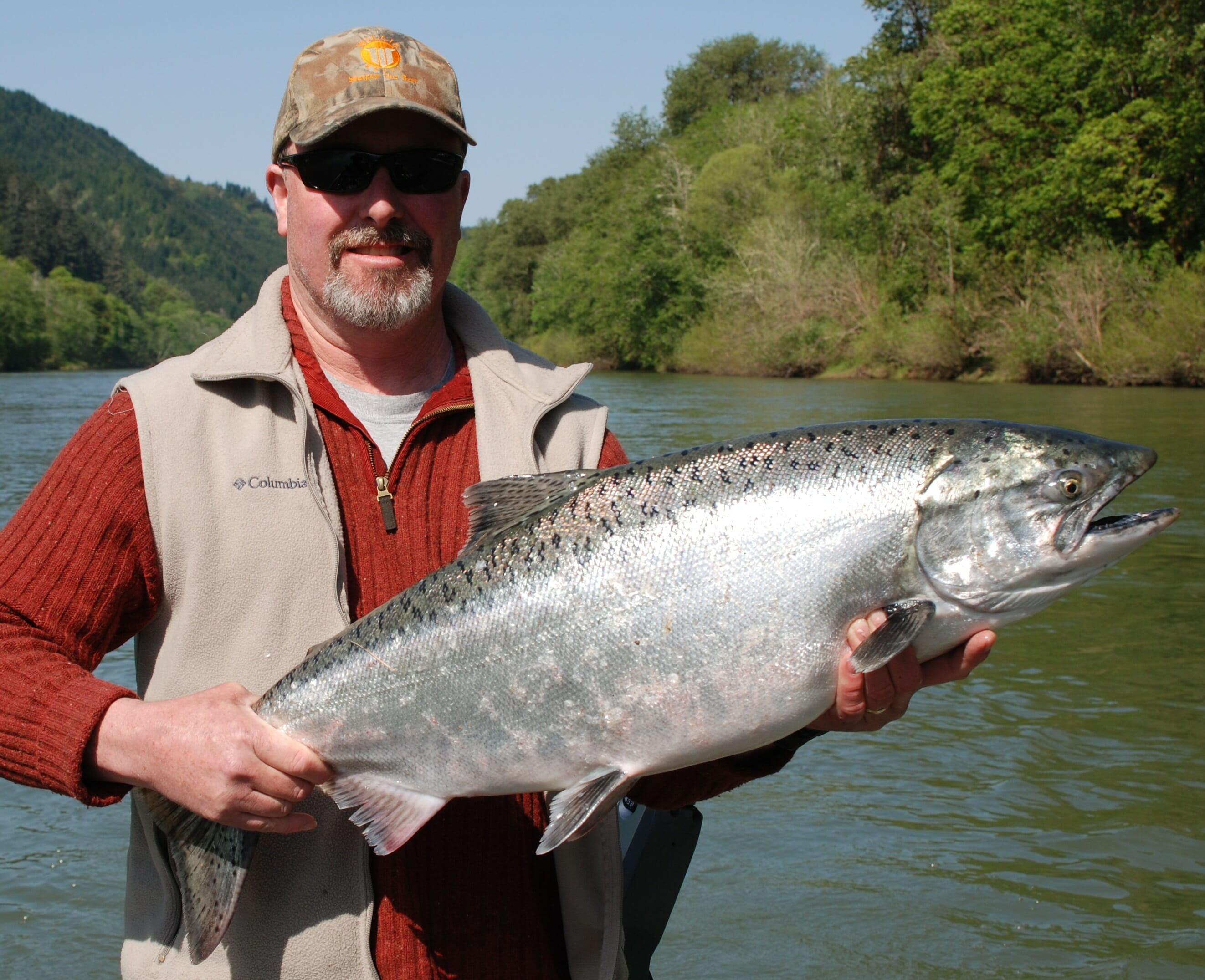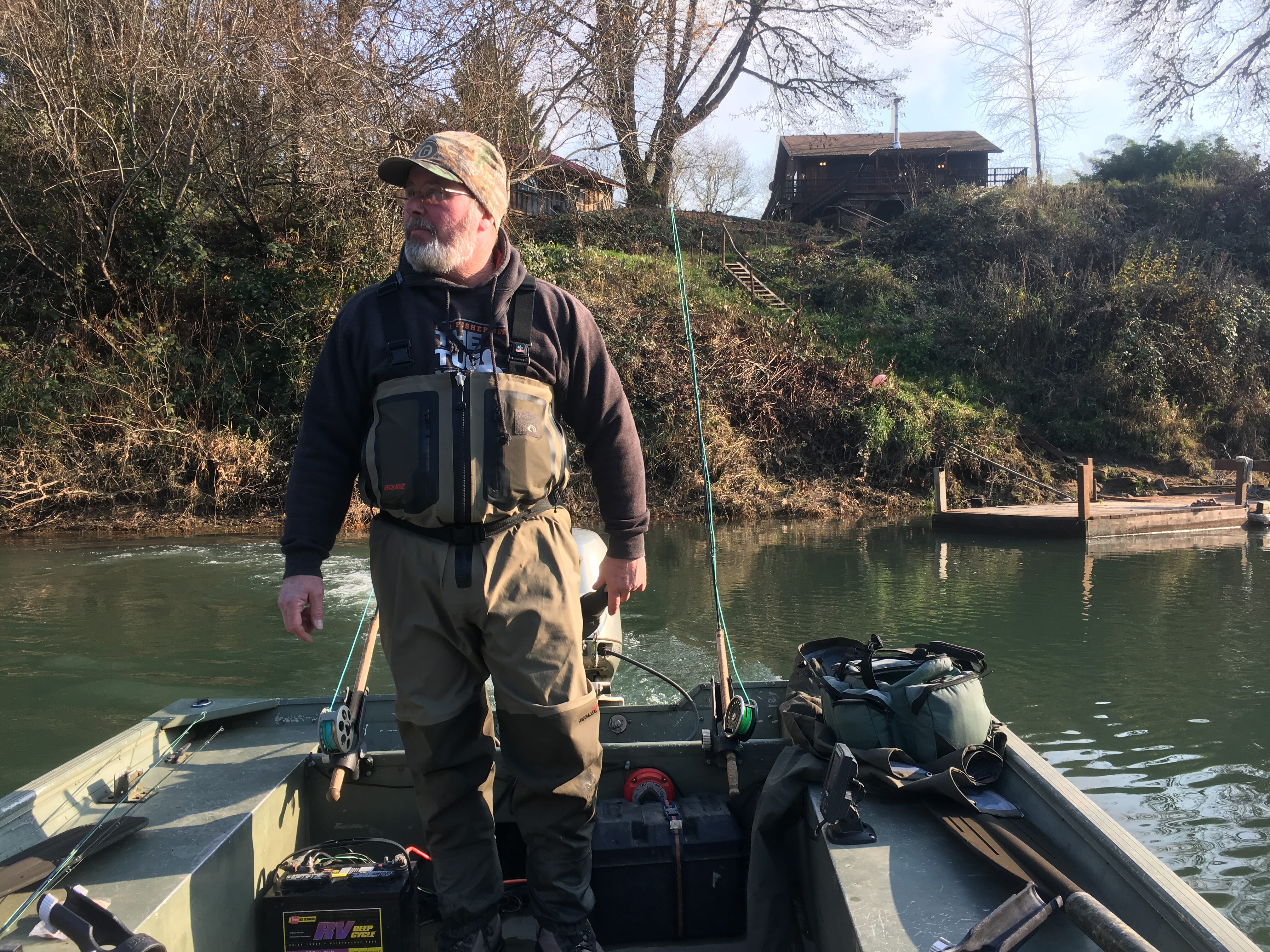Dean Finnerty, man for all seasons.
By Sam Davidson
Many people working for TU did not start in trout and salmon conservation. Among the former corporate lawyers, loggers, resource age
ncy staff, newspaper reporters, and outdoor educators now employed by TU, Dean Finnerty joins a select few who previously worked in law enforcement.
Dean grew up fishing and hunting the mountains and rivers of western Oregon. Eventually he translated his countless hours in the field to guiding with both rod and gun. But a strong commitment to making his corner of the world a better place led him to begin a career in law enforcement.
Dean’s days as a law enforcement officer were spiced with all kinds of characters. There were drug runners, violent crime perpetrators and motorcycle gangsters. Dean worked undercover as a meth cook, outlaw biker, and marijuana grower and distributor. Later, he served as a uniform patrol officer. In the performance of his duties he found creative ways to utilize all the tools of his profession—including a Mag-Lite flashlight, which is a more multi-faceted instrument than it seems at first glance.
 (L) Dean Finnerty, making the most of waterfowl season.
(L) Dean Finnerty, making the most of waterfowl season.
You might imagine that someone working full-time in law enforcement would be satisfied to put in his hours and then put up his feet. But not Dean. Until his retirement, even with decades of seniority, he chose to work the graveyard shift so he could spend his days guiding. This while supporting a family of seven.
Guiding gave him some balance. “In law enforcement, you always see people at their worst,” he says. “On a river or in the woods, you mostly get to see people at their best.”
Dean’s final day of a 26-year career as a law enforcement officer was a doozie. He awakened that morning to a major winter snow storm. The roads were treacherous. Dean seriously considered calling in sick. He had nothing to prove after two and a half decades with the PD. But the conscience of this man of strong faith wouldn’t let him bug out of his final day on the job he had made a career.
He managed to get to the office, where he suited up. As he went out into the parking lot to his patrol car, however, weather conditions caused another officer backing his car out of the lot to strike Dean in the process. Only luck—and Dean’s cat-like reflexes—prevented serious injury.
Dean’s wife couldn’t make it to her job that morning, so she joined him on a “ride-a-long,” and they shared the remainder of his last day as a peace officer. It was more “interesting” than Dean would have liked.
 (R) Dean Finnerty, moonlighting as a guide during his law enforcement days.
(R) Dean Finnerty, moonlighting as a guide during his law enforcement days.
They were called to do a “welfare check”—a woman hadn’t been seen by her family for several days. They arrived at the residence she shared with her boyfriend. There was snow on the ground and no tracks leading away from the house, so Dean suspected someone was home. However, no one responded to repeated call-outs and knocking on doors and windows.
Dean had probable cause to suspect the “tweaker” boyfriend was there, so he finally started to force entry. Using the mule-kick method, he got the door partly open, when suddenly the boyfriend appeared. Dean knew him, like he knew most folks in this small city. The man was apologetic, claiming he was afraid the person knocking was someone intending to do him harm. Dean said, “How many times did I identify myself? You know me!” Such facts are immaterial at times.
Dean asked about the girlfriend; the tweaker claimed he hadn’t seen her. The house was filthy, piles of garbage everywhere. Dean poked his head into other rooms, finding a Glock 9 mm on one of the beds. He touched its grip with the back of his hand—still warm. The boyfriend had been inside the house, armed with the handgun, the entire time Dean was outside the residence trying to gain access. It’s a chilling testament to how close Dean came to being in a fire fight on his last day in uniform.
Dean eventually departed having found no evidence of the girlfriend. He doesn’t know why the boyfriend didn’t shoot it out with him. He’s just thankful that it didn’t happen while his wife sat out in his patrol car waiting for him to “clear the call.”
 (L) Dean and a lovely Umpqua “springer.”
(L) Dean and a lovely Umpqua “springer.”
Towards the end of his shift, Dean got called to the local Wal-Mart to deal with a trespass incident. The guy in question was on site with his wife and previously had been arrested for trespassing there. Wal-Mart security wanted the guy arrested again. He had a warrant for his arrest, so Dean started to handcuff him. The guy struggled, hand in his pocket, trying to remove what turned out to be a baggie of meth and pass it to his wife—who took advantage of Dean’s preoccupation to punch him in the back of the head. So Dean had to subdue her, too.
After booking the couple, Dean finally clocked off duty for the last time. The next day he was on the water, guiding again.
Dean Finnerty is the definition of kinetic energy. Making knives or fixing mechanical devices in his impressive shop, talking on the phone, preparing meals for his colleagues—he is always doing something. A retirement filled mostly with casual guiding, while plenty satisfying for most folks, is not sufficient for this man for all seasons. And when TU came calling several years ago, asking if he would consider serving as the Oregon coordinator for the Sportsmen’s Conservation Project, there was no hesitation.
Dean’s role with TU now is a lot more substantial than when he started. He has mostly given up guiding to make sure he fulfills all the goals in his TU work plan. But as he takes several other TU staff to swing flies for steelhead recently off a gravel bar on his beloved Umpqua River, the guide habits and reflexes—even the look, while at the tiller—are there. Some things you never lose. Including an affection for Mag-Lites.
Dean Finnerty is now the northwest regional director for TU’s Sportsmen’s Conservation Project and director of TU’s Wild Steelhead Initiative. During his time with TU, Dean has played a lead role in advancing the Frank Moore Wild Steelhead Sanctuary legislation on the North Umpqua River; preventing the Elliott State Forest, a prime hunting and fishing resource, from being sold to private timber interests; establishing three new layers of protection for the NF Smith River (the lower Smith is a world-renowned wild steelhead and salmon fishery), including a 20-year “mineral withdrawal” by the Bureau of Land Management which reduces the chance of a proposed open pit nickel mine being developed there; and pushing Congress to designate the Elk River watershed as the Elk River Salmon Emphasis Area. He can be reached at dfinnerty@tu.org.
Sam Davidson is TU’s Communications Director for California and the Klamath Basin. He lives and works next to the Carmel River, on the central California coast.



